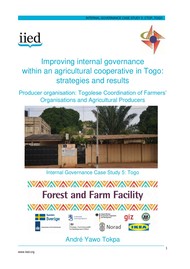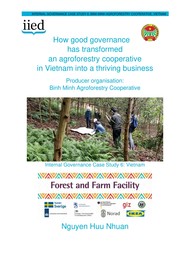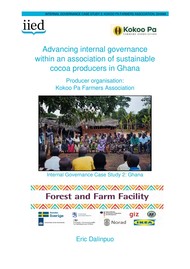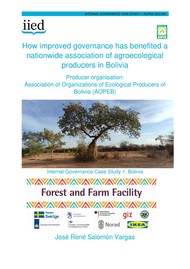Managing agrobiodiversity in successful smallholder landscapes in Ecuador
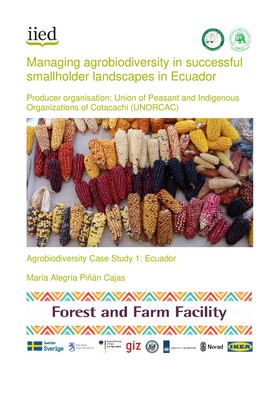
This agrobiodiversity case study (No.1) from Ecuador is the first of six case studies prepared by forest and farm producer organisations (FFPOs) for the Forest and Farm Facility (FFF).
It describes the actions of the Union of Peasant and Indigenous Organizations of Cotacachi (UNORCAC) in the conservation of agrobiodiversity in the forest and agricultural landscapes of the Cotacachi canton in Ecuador. These Indigenous systems stand out for their high biodiversity and for the agroecological approaches and traditional knowledge used. Their colourful mosaic landscapes contrast with the haciendas which are characterised by largescale monoculture crops based on biochemical and technological land-use packages that degrade the soil and water.
INORCAC’s strategy is rooted in Indigenous notions of territory renewed by solidarity and shared practices. It maintains an estimated 172 on-farm species – of which 97 are detailed in the case study. The term ‘chakra’ is used to describe this biodiverse agricultural system. The role of UNORCAC and its Women’s Central Committee has been focused on creating space for the transfer of knowledge, seed, and enterprise ideas. They run community product and seed fairs, a Bioknowledge Centre, gastronomic festivals, training workshops, and develop value-added enterprises such as a food supply company Sumak Mikuy (selling underutilised crops), Sara Mama (marketing the Chicha de Jora soft drink based on maize) and Runa Tupari Native Travel (that promotes Indigenous agricultural tourism). Women play a particularly important role as custodians of knowledge, culinary practices, agricultural and lunar cycles and the agricultural festive calendar.
In addition, UNORCAC and the Women’s Central Committee have tried to shape supportive public policies at the local level, such as the application for the territory to become a designated Globally Important Agricultural Heritage System (GIAHS).
Cite this publication
Available at https://www.iied.org/21386g


